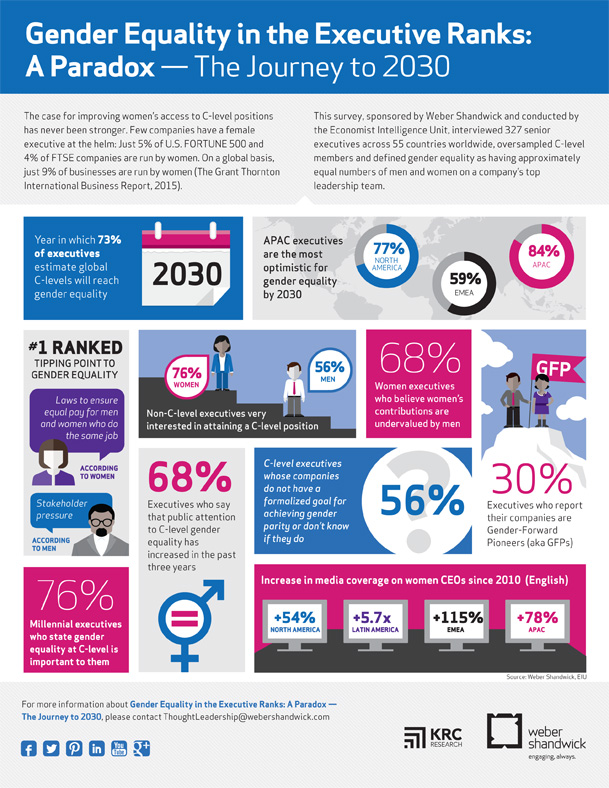Gender Equality in the Executive Ranks: A Paradox – The Journey to 2030
To better understand how companies can open the C-Suite door wider to women and thereby take advantage of the diverse perspectives that female leaders bring to their organizations, Weber Shandwick and KRC Research sponsored a survey conducted by the Economist Intelligence Unit (EIU) titled Gender Equality in the Executive Ranks: A Paradox — The Journey to 2030. The survey was conducted among 327 executives from 55 markets worldwide. At Weber Shandwick, we believe gender equality is an emerging driver of company reputation and will only become more powerful in the years to come.

According to the research, nearly three-quarters of global executives (73%) believe that gender equality in the C-Suite will be achieved by 2030. However, most C-level executives (56%) report that their company doesn’t have specific goals in place for achieving such an outcome, and only 39% of C-level executives report gender diversity in senior management as a high business priority, ranking seventh among 10 priorities.
Gender Equality in the Executive Ranks: A Paradox — The Journey to 2030 identifies push forces that will move gender equality further up the corporate leadership agenda and pull forces that prevent companies from achieving a gender balance. It also examines the roles of a group of companies and leaders, Gender-Forward Pioneers (GFPs), who are ahead of the curve in making diversity in senior management a reality. The report provides guidelines for achieving gender equality – an actionable framework for building a gender-forward reputation.
Click here to view the full report.
As a supplement to Gender Equality in the Executive Ranks, we created the Weber Shandwick GFP 2015 Index, which measures the percentage of Fortune Global 100 companies that achieved gender equality in their leadership ranks. According to this 2015 Index, only 12.5% of senior leaders in the world’s top 100 companies are women.
